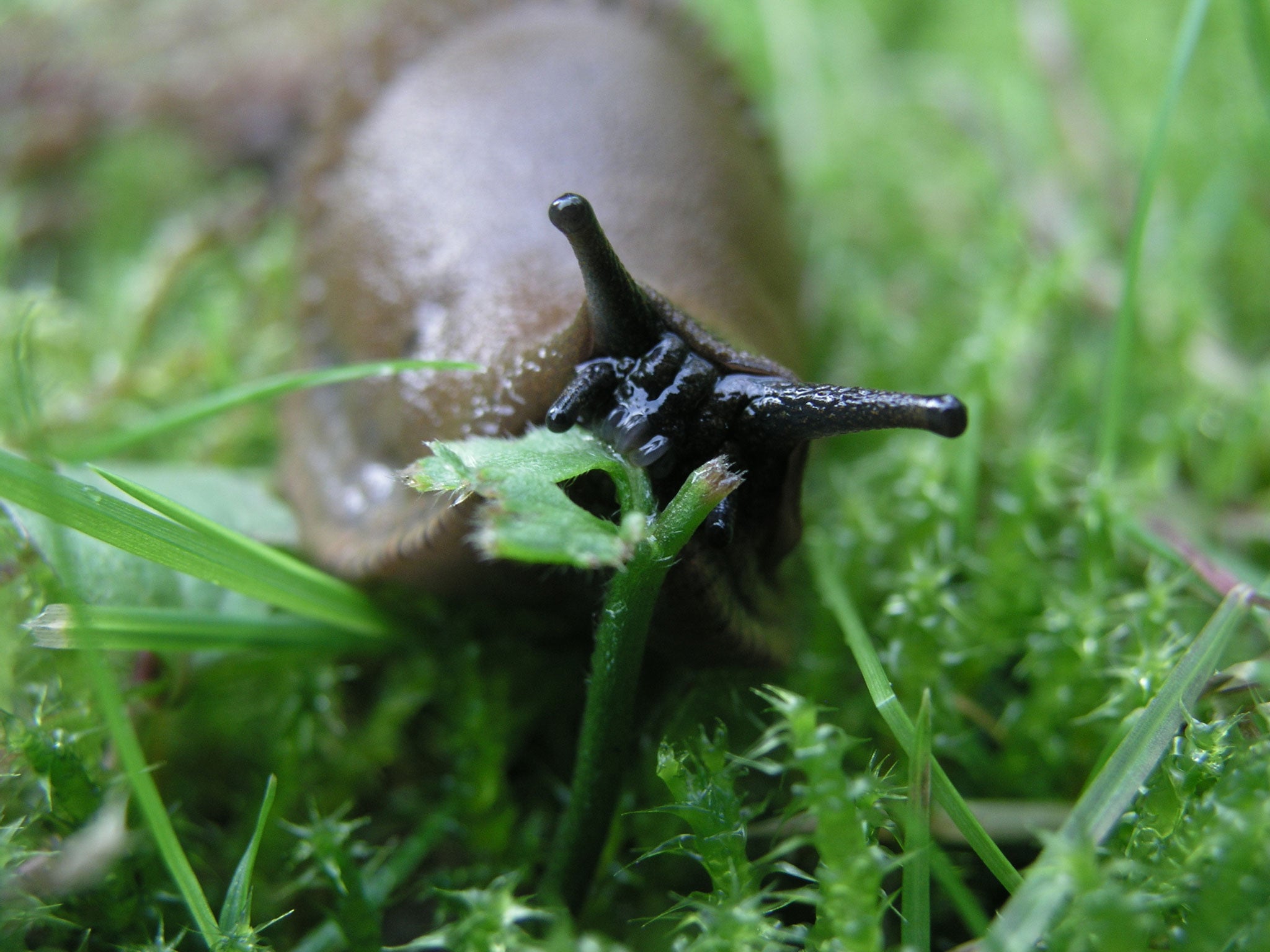Oversexed sleepless slugs set to devastate British gardens
The mild winter has allowed the population to increase

Britain’s gardens are set to be “devastated” by an unusually high number of slugs this summer because of a mild winter that has led a massive increase in the gastropod population.
‘Sleepless slugs’ have been forgoing winter hibernation, experts have warned, which means they have been mating more regularly rather than in just the summer.
The population of natural predators, such as hedgehogs, has also been falling.
The fears were highlighted by insect charity BugLife, which said the slugs are breeding faster than they can be controlled and could be very destructive to horticulture in the coming months.
The charity said there could be 10 per cent more slugs than the usual 20,000 to be found in a British garden.
“When the weather warms to 5C or more the existing, relatively high population will begin to breed more rapidly, with peak activity at about 10C,” Guy Barter, chief horticulturalist at the Royal Horticultural Society (RHS), told The Independent.
“If the weather is reasonably moist, numbers might peak, which may lead to severe damage, but a dry spring and summer will inhibit their activity.
“However, this spring the risk is high that we will face serious slug infestations.”
The effects of an unusually high slug population are already being felt. Mr Barter warns the RHS is observing damage to daffodils because of rampant slugs eating away at the plants. In addition, Mr Barter also said emerging hostas were in need of protection and seedlings were “very much at risk” from slugs.
Dr Ian Bedford, Head of Entomology at the John Innes Centre, warned that the explosion in slug numbers would likely lead to more invasive Spanish Slugs, which can reach 15cm long. The creature, which is very susceptible to cold weather, breeds more prolifically than native slugs and can completely take over areas, driving out other species, due to their population density.
Spanish Slugs sometimes feed on faeces and decaying meat, which can pose a serious health risk to other animals.
Dogs, foxes, and in particular hedgehogs, are vulnerable to a parasite known as lungworm, which can be fatal.
The temptation to swiftly deal with high numbers of slugs is a cause of concern to the British Hedgehog Preservation Society. “What is worrying is the fact that people are likely to use slug pellets and pesticides, which could harm hedgehogs, as well as birds and other wildlife,” said Fay Vass, chief executive of the group.
The RHS advised concerned gardeners to order slug control nematodes to apply as soon as the weather warms. “In the meantime weeding, tidying up and lightly tilling the soil will expose molluscs to weather and predators,” Mr Barter said.
“Where damage does occur, pellets based on iron phosphate can be used, as these have a very low potential for harming non-target organisms or polluting water.”
Subscribe to Independent Premium to bookmark this article
Want to bookmark your favourite articles and stories to read or reference later? Start your Independent Premium subscription today.

Join our commenting forum
Join thought-provoking conversations, follow other Independent readers and see their replies